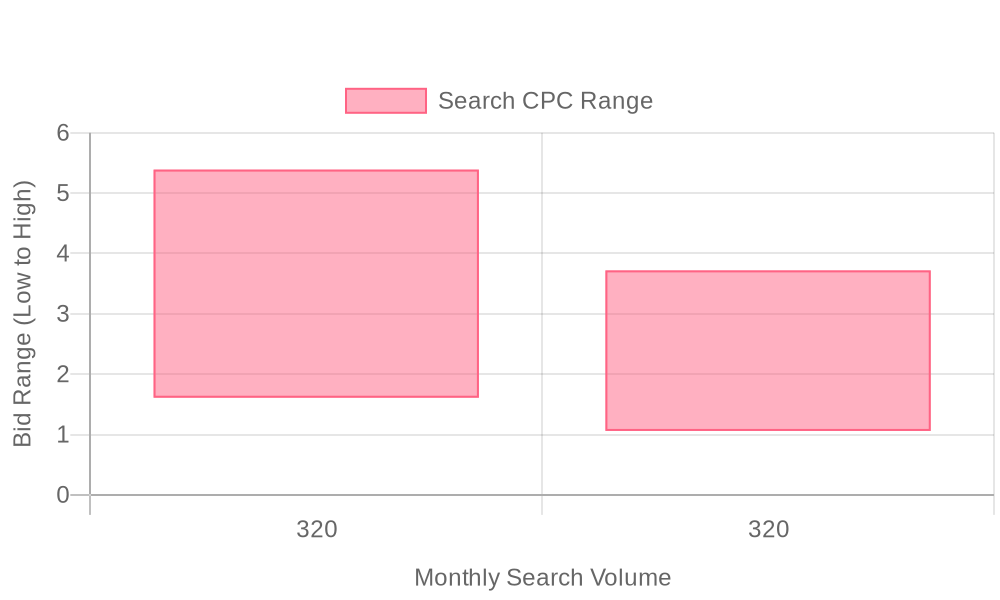
Supercharge your lead generation with a FREE Google Ads audit - no strings attached! See how you can generate more and higher quality leads
Get My Free Google Ads AuditFree consultation

No commitment
Supercharge your lead generation with a FREE LinkedIn Ads audit - no strings attached! See how you can generate more and higher quality leads
Get My Free Google Ads AuditFree consultation

No commitment
Supercharge your lead generation with a FREE Meta Ads audit - no strings attached! See how you can generate more and higher quality leads
Get My Free Google Ads AuditGet My Free LinkedIn Ads AuditGet My Free Meta Ads AuditFree consultation

No commitment
Supercharge your lead generation with a FREE Google Ads audit - no strings attached! See how you can generate more and higher quality leads
Get My Free Google Ads AuditFree consultation

No commitment
In today's digital-first environment, entertainment services face unique challenges when it comes to effectively reaching their audiences. The shift from traditional ads to digital platforms reflects a crucial need for precise targeting—specifically for engaging the right audience at the right time. With heightened competition and dynamic consumer interests, businesses must address the difficulty of reaching audiences through increasingly ineffective traditional methods. Google Ads presents an unparalleled opportunity for marketers to intercept prospects exactly when they're actively searching for captivating experiences. This transition is essential for converting interest into tangible outcomes such as ticket sales and app downloads. For entertainment businesses, mastering this approach not only boosts revenue but also enhances overall brand awareness in a competitive landscape.

Entertainment marketers operate in a highly competitive environment where attention is fleeting and consumer preferences shift rapidly. Achieving consistent lead generation requires a methodical approach that blends precise audience targeting, real-time behavioral insights, and seamless data activation across channels.
A structured Google Ads strategy transforms anonymous web traffic into actionable opportunities for entertainment services. By leveraging advanced audience segmentation and real-time intent signals, teams can focus spend on prospects with proven purchase likelihood, creating a pipeline of high-quality leads ready to convert. For a deeper dive into this process, Google Ads for entertainment provides actionable industry context.

Entertainment services face fierce competition for audience attention and need a digital advertising approach that adapts quickly to dynamic shifts in demand. Google Ads empowers entertainment brands to target the right audiences, maximize event attendance, and drive app downloads by leveraging real-time insights and intent data.

Entertainment companies operate in an environment where digital presence is critical to audience acquisition and retention. Strategic use of Google Ads enables marketers to position their offerings at pivotal moments, capturing attention and guiding users toward conversion with tailored messaging and optimized placements.
Each campaign type within Google Ads plays a unique role in supporting entertainment marketing strategies. These formats, when orchestrated effectively, address ongoing visibility challenges, improve engagement, and maximize the value of every marketing dollar by connecting intent-rich audiences to relevant experiences. Google Ads for Entertainment provides a comprehensive overview of the unique considerations for this sector.

B2B entertainment marketers face intense competition and a rapidly fragmenting audience landscape. Growth hinges on uncovering new, high-value segments and executing efficiently across platforms where decision-makers and buyers actually engage.
The most effective teams sidestep wasted budget by layering advanced targeting on top of traditional campaign structures. They leverage unified data and automation to shift focus from vanity metrics to tangible business outcomes. Google Ads tips provides a deeper look at how data-driven marketers achieve measurable impact.
Ready to uncover new opportunities in your own campaigns? Get started and see how advanced segmentation and targeting can accelerate your results.

Entertainment brands achieve measurable growth by moving beyond generalized messaging and connecting with the distinct interests of their audiences. Tailoring campaigns to specific consumer behaviors and stated preferences enables marketers to create memorable experiences that drive higher engagement and conversions.

| Industry | Keyword | Monthly Search Volume | Competition Level | Low Bid | High Bid |
| Entertainment Services | entertainment services | 320 | LOW | 1.61 | 5.39 |
| Entertainment Services | entertainment agencies | 320 | LOW | 1.06 | 3.72 |
Effective keyword strategy is foundational for driving measurable ROI in google ads for entertainment services. Precision targeting ensures your campaigns reach audiences who are most likely to convert, while minimizing spend on irrelevant clicks.
A modern approach to keyword management involves audience data flowing seamlessly between CRM systems and Google Ads, ensuring each campaign reflects the latest customer behaviors and lifecycle stage. For more insights on optimizing paid campaigns, check out our guide on Google Ads ROI. This unified view enables B2B entertainment marketers to optimize for both online and offline conversions, supporting advanced attribution and measurable business outcomes.
Precision in keyword selection forms the foundation for high-performing google ads for entertainment services. Effective campaigns cluster keywords by entertainment type—such as concerts, live theater, streaming platforms, or amusement parks—and layer in geographic modifiers to reach local audiences. By refining these clusters based on audience behavior and search intent, marketers can ensure messaging lands with the right prospects at the right moment. Google Ads for Entertainment provides a deeper look at how nuanced targeting can drive results in this sector.
Integrating keyword research with digital strategies allows for seamless alignment between paid and organic channels. When audience segmentation data is unified across platforms, marketers can identify not just which terms drive clicks, but which lead to sales, ticket bookings, or app downloads. Tools like Sona ID help pinpoint high-value companies and decision-makers actively searching for relevant entertainment offerings.
Ad copy is a critical lever for reducing drop-off rates and driving conversions in advertising entertainment services. Copy should evoke the unique aspects of each experience—highlighting exclusivity, urgency, or behind-the-scenes access that sets the event or service apart. By mirroring the language of target audiences and focusing on clear calls to action, campaigns can bridge the gap between digital impressions and real-world attendance or engagement.
Ensuring coherence between ad messaging and brand narrative is essential, particularly for campaigns spanning multiple entertainment categories or locations. When campaign data is dynamically connected to the broader brand strategy, marketers can adapt language in real time as audience segments move through the funnel. This builds on the strategies outlined in the Retargeting Guide, where dynamic audience updating ensures every interaction reflects current interests and buying signals.
Optimized landing pages play a pivotal role in converting ad interest into satisfied customers for entertainment services. Each landing page should match ad intent, from the headline to the call-to-action, and be designed for seamless navigation on both desktop and mobile devices. Fast load times, clear ticketing options, and trust signals like reviews or secure payment badges all contribute to greater conversion rates. Landing Page Best Practices provides actionable recommendations for increasing conversions.
Integrating landing page interactions with CRM systems ensures that every sale or inquiry is tracked to the originating campaign and keyword. With this connectivity, sales teams receive enriched lead profiles while marketing gains full-funnel visibility into which creatives and channels drive true business outcomes. Solutions such as Sona Destinations support advanced conversion tracking—enabling accurate ROI measurement for each entertainment campaign.
Continuous optimization is essential for maximizing results in Google Ads campaigns for entertainment. Real-time insights into audience behavior, creative performance, and conversion pathways allow for agile budget adjustments and targeting refinements. Entertainment Benchmarks shares industry benchmarks for this approach.
This data-centric approach also supports advanced attribution, connecting ad interactions to both online and offline sales. Real-time syncing between ads, CRM, and sales platforms ensures that enriched audiences are always up to date in Google Ads, supporting retargeting and lookalike campaigns that adapt as leads progress through the funnel. Platforms like Sona Audiences are designed to help target and update high-value audience segments as intent shifts.
Entertainment brands need to consistently broaden their visibility to attract new audiences and sustain engagement. By integrating targeted marketing strategies across channels, teams can mitigate fragmentation and ensure cohesive messaging that resonates with both existing and potential fans.
A targeted Google Ads approach for entertainment services delivers measurable impact by aligning campaign strategy to real consumer intent. Leveraging robust data and precise segmentation, marketers consistently outperform generic tactics and drive audience engagement that translates to real revenue.
By emphasizing a targeted, data-driven approach across these pillars, entertainment services achieve greater reach, higher engagement, and a measurable lift in return on ad spend. Strategic integration of audience intelligence, creative testing, and cross-channel data positions marketers to overcome industry challenges and secure sustainable campaign growth. Ready to elevate your entertainment marketing strategy? Get started today.
Google Ads offers a powerful way to elevate your entertainment services, whether you're promoting events, apps, or other experiences in this fast-paced industry. By leveraging targeted campaigns, engaging creatives, and data-driven optimizations, you can cut through the noise and connect with the right audience.
Throughout this guide, we’ve explored how to structure campaigns for maximum impact, refine audience targeting, and measure performance to ensure your ads drive real results. From crafting compelling ad copy to retargeting high-intent users, these strategies help you turn clicks into conversions and grow your entertainment business.
Imagine effortlessly scaling your reach, filling seats at your next event, or seeing your app climb the charts—all while optimizing your ad spend for the best return. With the right approach, Google Ads can be the catalyst that transforms your marketing efforts and unlocks new opportunities.
Ready to put these insights into action? Start a free trial to experience the platform and its capabilities firsthand.
Google Ads allows entertainment services to precisely target audiences when they are actively searching for experiences, helping to convert interest into ticket sales, app downloads, and enhanced brand awareness.
Best practices include precise audience targeting, real-time data activation, keyword and audience segmentation, landing page alignment, continuous performance optimization, and cross-channel integration.
The budget should focus on high-intent audiences and be adjusted based on real-time performance metrics to ensure maximum return on investment, but specific amounts are not detailed in the article.
Effective types include search campaigns, display ads, video ads, remarketing, and using ad extensions to enhance user engagement and conversion rates.
To create a campaign, start by building targeted keyword lists, developing compelling ad copy, designing effective landing pages, and implementing data-driven optimizations for continuous improvement.
Join results-focused teams combining Sona Platform automation with advanced Google Ads strategies to scale lead generation

Connect your existing CRM

Free Account Enrichment

No setup fees
No commitment required

Free consultation

Get a custom Google Ads roadmap for your business
Join results-focused teams combining Sona Platform automation with advanced Meta Ads strategies to scale lead generation

Connect your existing CRM

Free Account Enrichment

No setup fees
No commitment required

Free consultation

Get a custom Google Ads roadmap for your business
Join results-focused teams combining Sona Platform automation with advanced LinkedIn Ads strategies to scale lead generation

Connect your existing CRM

Free Account Enrichment

No setup fees
No commitment required

Free consultation

Get a custom Google Ads roadmap for your business
Join results-focused teams using Sona Platform automation to activate unified sales and marketing data, maximize ROI on marketing investments, and drive measurable growth

Connect your existing CRM

Free Account Enrichment

No setup fees
No commitment required

Free consultation

Get a custom Google Ads roadmap for your business
Over 500+ auto detailing businesses trust our platform to grow their revenue
Join results-focused teams using Sona Platform automation to activate unified sales and marketing data, maximize ROI on marketing investments, and drive measurable growth

Connect your existing CRM

Free Account Enrichment

No setup fees
No commitment required

Free consultation

Get a custom Google Ads roadmap for your business
Over 500+ auto detailing businesses trust our platform to grow their revenue
Join results-focused teams using Sona Platform automation to activate unified sales and marketing data, maximize ROI on marketing investments, and drive measurable growth

Connect your existing CRM

Free Account Enrichment

No setup fees
No commitment required

Free consultation

Get a custom Google Ads roadmap for your business
Over 500+ auto detailing businesses trust our platform to grow their revenue
Our team of experts can implement your Google Ads campaigns, then show you how Sona helps you manage exceptional campaign performance and sales.
Schedule your FREE 15-minute strategy sessionOur team of experts can implement your Meta Ads campaigns, then show you how Sona helps you manage exceptional campaign performance and sales.
Schedule your FREE 15-minute strategy sessionOur team of experts can implement your LinkedIn Ads campaigns, then show you how Sona helps you manage exceptional campaign performance and sales.
Schedule your FREE 15-minute strategy sessionOur team of experts can help improve your demand generation strategy, and can show you how advanced attribution and data activation can help you realize more opportunities and improve sales performance.
Schedule your FREE 30-minute strategy sessionOur team of experts can help improve your demand generation strategy, and can show you how advanced attribution and data activation can help you realize more opportunities and improve sales performance.
Schedule your FREE 30-minute strategy sessionOur team of experts can help improve your demand generation strategy, and can show you how advanced attribution and data activation can help you realize more opportunities and improve sales performance.
Schedule your FREE 30-minute strategy sessionOur team of experts can help improve your demand generation strategy, and can show you how advanced attribution and data activation can help you realize more opportunities and improve sales performance.
Schedule your FREE 30-minute strategy session





Launch campaigns that generate qualified leads in 30 days or less.
